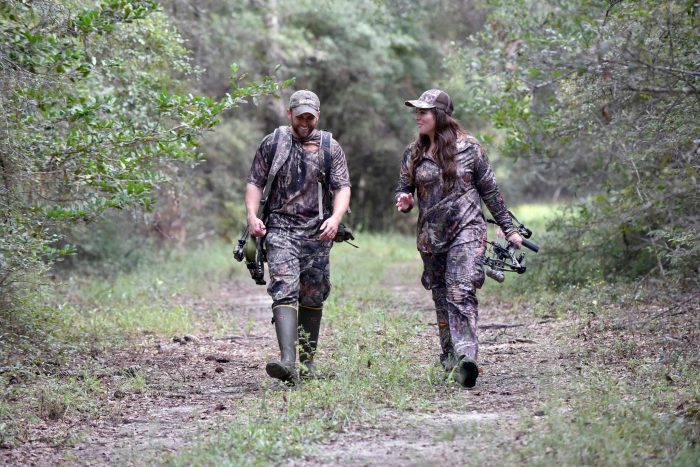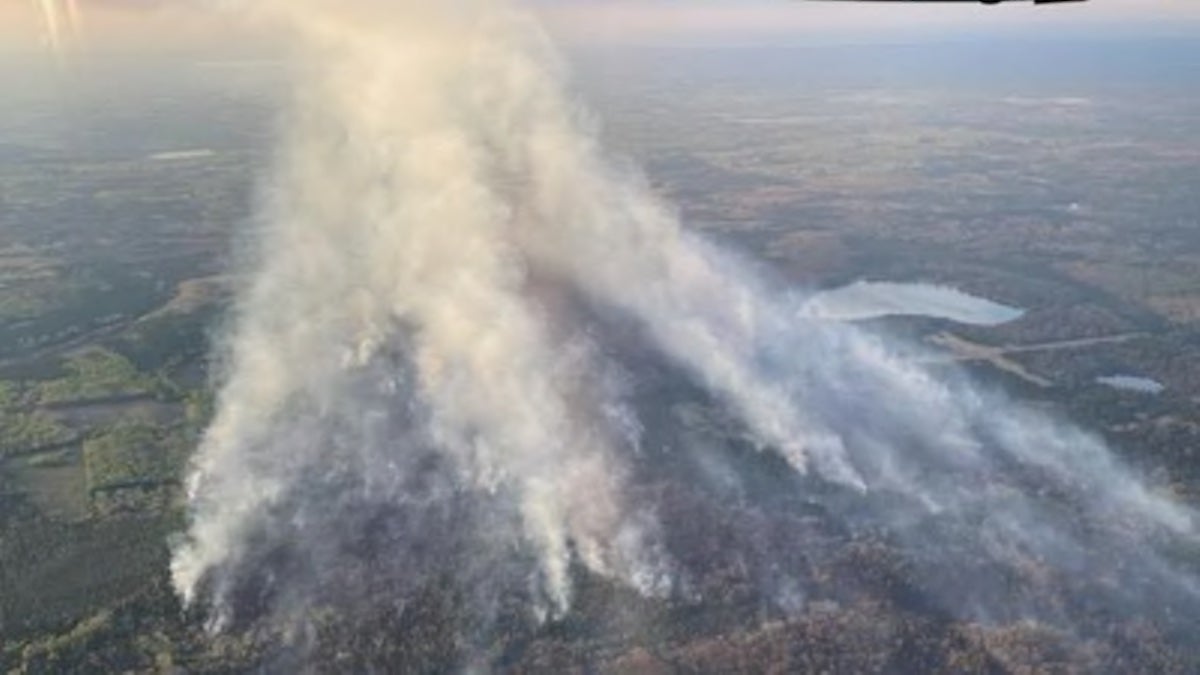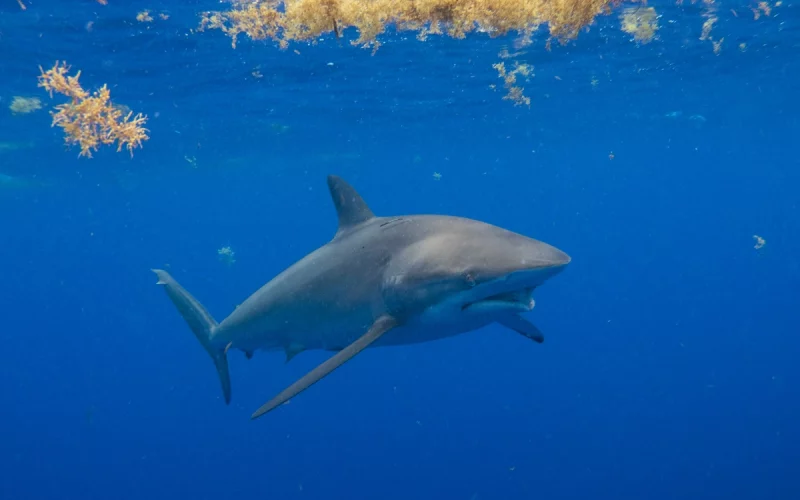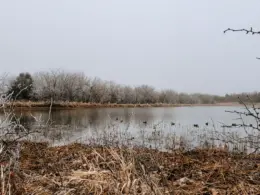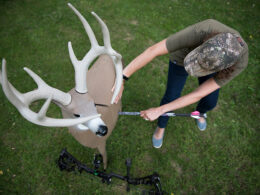As I sipped coffee on a cold November morning, my phone pinged with a text message from Dad: “Several spike elk at 150 yards. They have no idea we are here.” My immediate and excited response was, “Shoot two, and I’ll come to help you pack them out.” My dad and brother had gone on a morning hunt looking for mule deer in Central Montana. They happened across seven spike elk grazing on a mountainside in a hunting unit where they were legal to take on a general permit.
Growing up in Southern Idaho, we primarily hunted mule deer bucks, usually going for trophy animals if we were lucky enough to find them. When I moved to Montana over 15 years ago, my ex-husband introduced me to serious elk hunting. I spent many long, cold, miserable days in the backcountry chasing big bulls and learning the ropes. However, my dad and brother had yet to experience an elk hunt in Montana. Elk are much bigger than deer, and the logistics of packing them out of the mountains are more challenging.
A short time later, I received a follow-up text that they had successfully gotten one down. I packed my gear, got in the truck, and was on my way. While I grew up hunting, my perspective on the sport has shifted over time. I experienced trophy hunting at its finest while married to a hunting guide, but I always held on to the adage, “You can’t eat the antlers.”
That spike bull my dad took successfully on that Montana mountain last fall has been one of the tastiest animals I’ve ever eaten. It was also a lot of fun to help them pack it out.
Hunting is beginning to appeal to a new demographic of people. While the reasons are varied, knowing where your meat comes from and that it was harvested sustainably is a huge reason, among many.
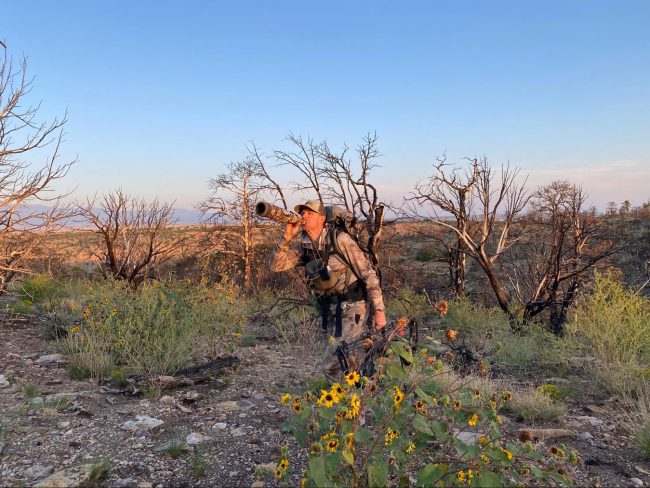
Table of Contents
Hunting Traditions
There was a time when people hunted and gathered for survival. Think of Lewis and Clark on their expedition across North America, hunting various wild game species. They documented the hunting of bison, deer, elk, pronghorn, bear, wild sheep, different small game, and more. The entire party would have perished if they had not had wild game available or were unsuccessful.
Over time as we settled the land, humans domesticated animals, farming became a better way to secure large amounts of food, and people hunted less. Larger populations began to live in cities and towns, and people lost the skills and abilities to hunt for food. After all, when you can go to the grocery store for what you need, why bother with the challenge and uncertainty of hunting for your meat? Other leisure activities took priority, and we got lazier. Additionally, wild animals don’t usually thrive in big cities.
Despite many people losing this skill, the tradition continues amongst others, particularly those that live in rural settings. People that live in the country or small communities outside cities have often hunted. Even farmers and ranchers, despite growing food, continue to hunt. Trophy hunters have also continued the tradition despite some outrage among the general public. What needs to be discussed more is the game management objectives met through hunting. Because humans have encroached on wildlife and their habitat, we must find ways to manage wild game numbers to accommodate, and hunting is a logical approach.
As a broader range of people have access to factual information about hunting, it has piqued interest. Whether or not people live in rural areas, many have begun seeing the benefits of hunting, and new demographics are attracted to the sport. Further, there is so much information and help available for new hunters it no longer seems so inaccessible.
So Why is Hunting Attracting a New Demographic?
Despite the potentially harmful media attention hunting has generated in recent years, many positive reasons exist for people to hunt. And to keep the tradition alive, new demographics must participate.
The reasons people may want to start hunting are varied. Some of these include:
- Wild game is a source of free-range, hormone-free, lean protein.
- Hunting is a chance to get in nature and enjoy the great outdoors.
- It’s a challenging sport that takes time to learn many aspects.
- Hunting is an excellent opportunity to spend time with family and friends.
- An opportunity for adults and children to learn how to use and handle weapons, including firearms, ethically and responsibly.
The Appeal of Big Game Meat
More people outside the traditional hunting industry have become interested in the sport because the meat acquired on a successful hunt is a clean source of protein. We have become a society of fast, easy, and overly processed food. Recently, there has been a significant movement towards grass-fed, free-range meat. What better source than wild game?
These animals live free, whether elk, deer, pronghorn, bear, wild sheep or goat, bison, moose, caribou, or any other big game. They roam the mountains or prairies foraging on nature’s plants. Some may complain wild animals may taste “gamey” because they are not corn-fed, feedlot-raised beef. If you’ve ever had domestic grass-fed meat, odds are it, too, carried a slightly gamey flavor. This issue is easily mitigated by learning how to field dress, age, and cook big game properly.
Comparisons of various domestic types of meat with wild game show protein content to be higher in wild animal meat. Wild game is a clean source of lean protein with no growth hormones, antibiotics, or high-fat feeds such as corn being pumped into them.
With these ideas in mind, it’s no wonder hunting has begun to appeal to a broader range of people.
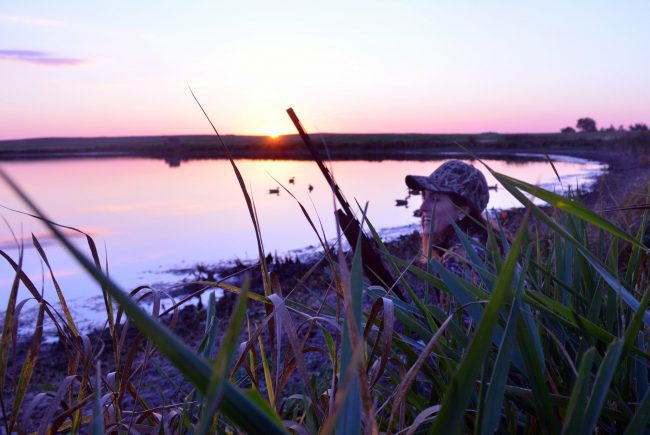
Spend Time in Nature and Get exercise
The pandemic left people feeling cooped up and claustrophobic in their homes and cities. While people have long understood the benefits of nature, the trend to get outdoors was at the forefront of everyone’s minds. People migrated from cities to smaller, rural areas where hunting opportunities were more plentiful. Because of this, there was a newfound sense that hunting was a wholesome opportunity to obtain clean food while getting outside.
Hunting can take many forms depending on the type and location of wild game being pursued and the weapon being used. However, one thing is sure: wild game lives outdoors, and one must get outside to be successful. For example, suppose you choose to hunt a species like elk. In that case, there is an incentive to get into shape beforehand, as chasing elk (or other species) around the mountains is not for the faint of heart. These animals get around in rough terrain a lot easier than we do! Taking whitetail deer from a stand may require less cardio, but it will still mean walking in the woods and spending time outside.
The Challenge of Learning Something New
Hunting is not a sport that can be learned in a day. There are many components, including learning which firearm to use and how to use it; understanding where wildlife lives and their behaviors; knowing what gear and equipment to use; and how to field dress, pack out, and process an animal once you have one down.
My friend Katherine got divorced and experienced a year of adding new sports to her recreational arsenal. She began river rafting, skiing, fly fishing, and hunting. She reasoned that she wanted something to do every season in Montana. I offered to take her elk hunting one morning, and off we went. She experienced a lot of lessons that day, but it kept her wanting to learn more and keep at it. She has since identified and purchased a firearm and learned how to use and care for it. She has researched and studied hunting and gotten outside and done it. For several autumns, her freezer has been filled with tender whitetail bucks she uses to feed herself and two kids. This new challenge has rewarded her in various ways.
The reasons for taking on the challenge of hunting are varied. Everyone has their motives. What matters is being willing to take the time to learn how to be an ethical hunter and what it takes to be successful and have fun in the process. Although there are many more unsuccessful days than not, those days make the successful ones sweeter.
Time With Family and Friends
Whether teaching your kids to hunt or doing it with your parents, cousins, aunts, uncles, grandparents, or friends, it is often more fun with others. While hunting takes a lot of work, the real work usually begins once you have an animal down. The more people to help field dress, pack, and process, the better! Once the work is done, there is the benefit of a shared meal of your sustainably harvested meat.
Responsible Use of Weapons
Hunting is also a great way to teach kids how to use weapons responsibly. Most hunting is done with firearms, although many people archery hunt or trap. Taking a big game animal will provide first-hand experience demonstrating what a weapon, especially a gun, can do. Killing another living creature is not easy. Despite hunting my entire life, I still feel remorse and sadness at taking a life. I greatly respect these animals and don’t take shooting them lightly. I have a greater sense of responsibility for the weapons I use as I know what I am capable of doing with them.
Ethical Hunting
Whether you’ve already started hunting or are considering it, doing it ethically and responsibly is paramount. Hunt ethics ensure everyone stays safe, animals are taken quickly and painlessly, the land is left as we found it, public and private lands are respected, and the law is followed.
There are a significant number of people hunting on public lands, which has the potential to create conflict. To mitigate this, understand the laws and read the rules and regulations for the species and the state you’re hunting in. Common sense goes a long way.
Make sure you have practiced with and are comfortable with the weapon you are using. Know how far away you can shoot, and make sure you take good, clean shots. Sometimes people will take shots much further than what they or their weapon is capable of, which can severely wound an animal but not kill them. A lousy shot can result in lots of suffering by the animal.
Practice Leave No Trace when using public and private lands. Don’t litter, drive off designated roads, leave fires unattended, damage or cut fences, or do anything else that will create damage. If you’re lucky enough to have permission to hunt on private land, leave gates as you found them. Make sure you know what your target is. Many ranchers have lost cattle and horses to hunters that didn’t know what they were shooting at.
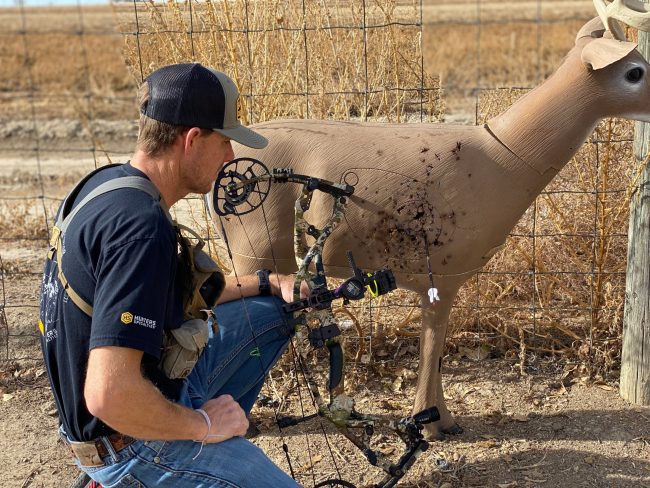
Hunting Means a Lifetime of Adventure and Meat in Your Freezer
Hunting takes work for whatever wild game you hunt and your method. Many aspects must be learned, from responsible weapon use to how to find and take the animals you’re hunting. However, the rewards, even on tough days, are worth it.
Incentives for hunting include a freezer full of lean, clean protein, time spent outside, a new and exciting challenge, and an opportunity to spend time with family and be a responsible gun owner. No wonder a new group of people is interested in hunting!
As luck would have it, later in the same season my dad took his spike bull, I returned to the same spot and took one. My freezer is currently full of elk burgers, roasts, and steaks. Whenever I pull a piece of meat out to go with my garden carrots and potatoes, I’m taken back to that cold, snowy mountainside in November and field dressing my elk in 0-degree weather. My dad and brother were on hand to help me pack it out. It wasn’t easy, but it sure was worth it.

